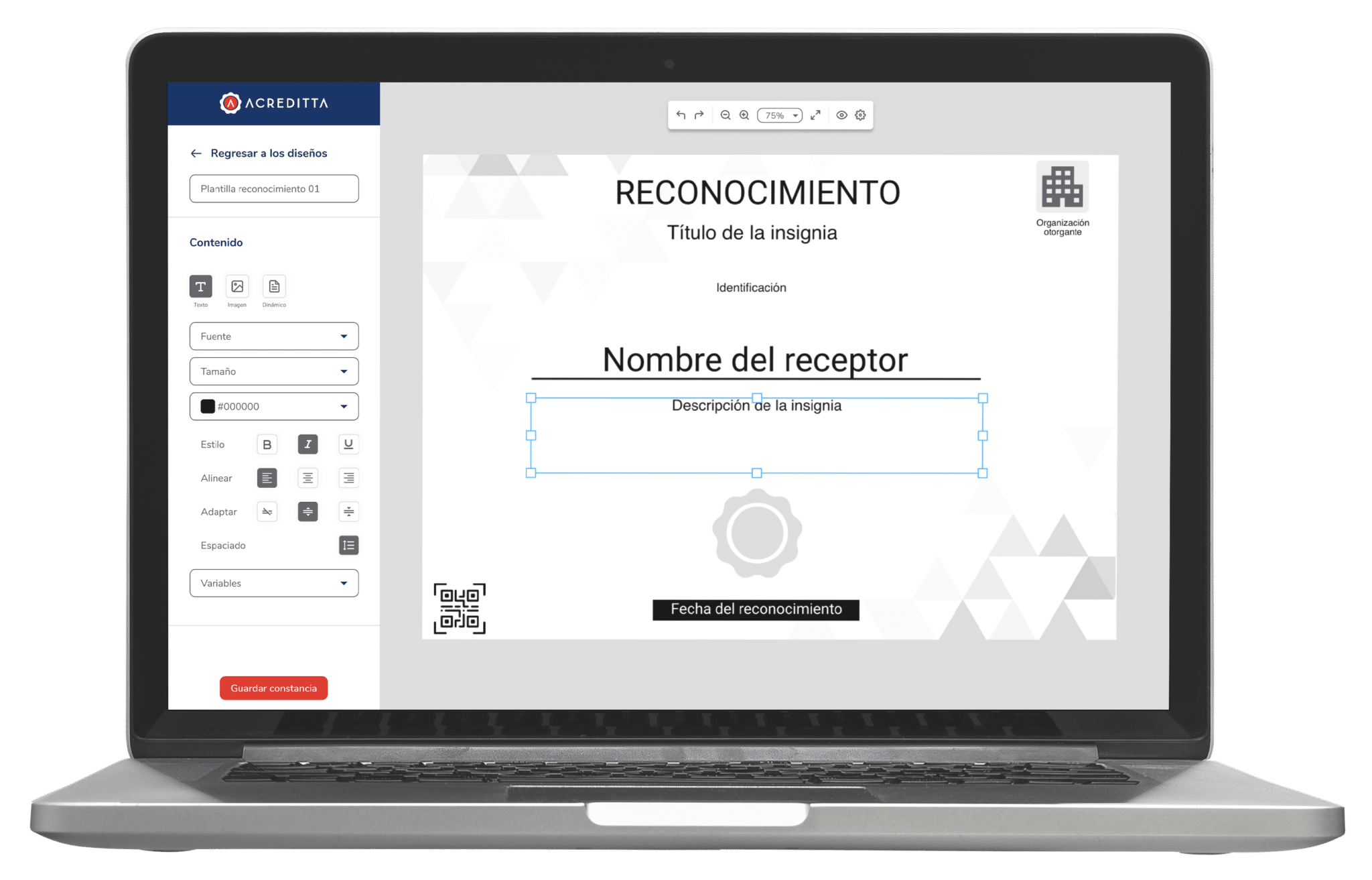What are university degrees with blockchain?
Academic degrees certify the completion of an educational program. Traditionally, these documents have been issued in physical format, but in recent years the use of digital titles has become popular since they are governed by the W3C Verifiable Credentials standard with Blockchain infrastructure. This technology guarantees security, transparency and traceability of data.

Don’t be left behind in the implementation of new accreditation technologies. Electronic accreditation at the university facilitates the incorporation of your graduates into the labor market and facilitates their access to other university studies.
This technology allows the student to download and share their degree in one click and gives them access to a wallet where they can store their academic history that can be verified by a recruiter, thus increasing their employability options.
What information do they contain?
Stamp
Emblem that complements the achievement or recognition granted through the certificate.
Issuing entity
The organization, institution or company that grants the credentials.
Obtaining criteria
he specific requirements that an individual must meet to receive the credentials.
Date of issue
The date the credentials were granted.
Credential description
A brief description of what the credentials represent and the demonstrated skills.
Link to evidence
Links or references to evidence that supports the achievement represented.
Quality standards
The standards that guarantee the legitimacy and validity of credentials.
Diploma code
A unique code that identifies the credential.
Study area
The field of knowledge or discipline in which the credential was obtained.
Program
The specific name of the study program that led to the credential.
Faculty
The academic unit within the institution that granted the credential.
Diploma type
The type of credential awarded, such as degree, diploma, certificate, etc.
Registration record
The official document that records the obtaining of the credential.
This is how they look on the platform
Related Posts

Benefits of electronic professional titles with Blockchain
The electronic professional titles, also known as digital academic degrees, are diplomas that accredit a person’s university degree. These titles are stored and managed digitally, using blockchain technology to…

5 key strategies to differentiate your university in the educational market
In an increasingly saturated educational market, implementing key strategies to differentiate your university is essential to stand out and attract more students. Institutions that innovate and adapt to the changing…

Acreditta brings innovation to students and employers in Latin America
By certifying with the most recent standard of verifiable credentials and Blockchain technology of the LACNet network, a record will be made more secure and interoperable of diplomas that will…


